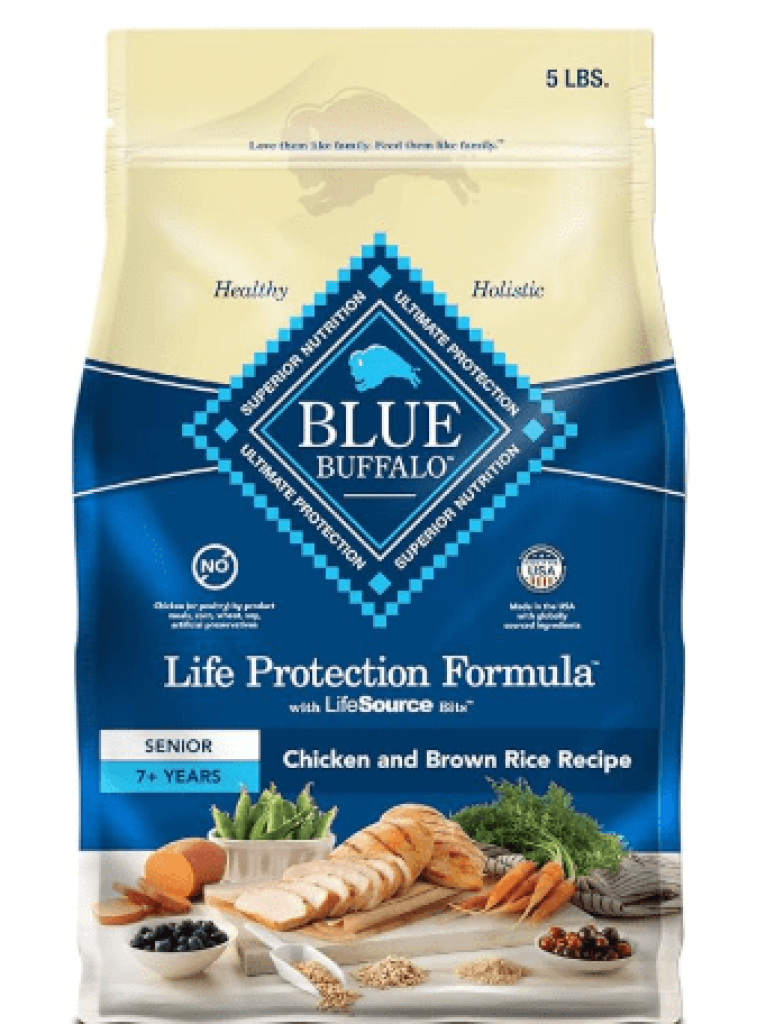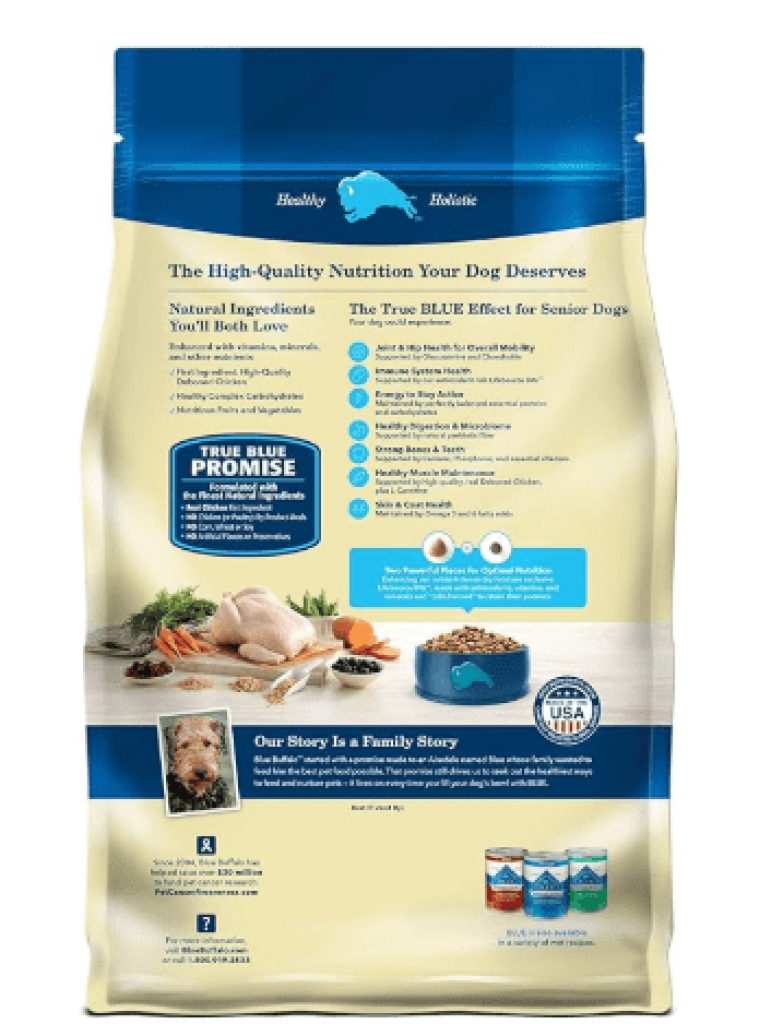
Dogs have been and are our loyal friends throughout history. These lovely creatures provide us with the most service when they are young and energetic. Therefore, when they get old, we should also take care of them and be careful that they do not have a hard time. In this article, we intend to fully explain the nutrition of old and elderly dogs and provide you with a suitable diet plan to protect your dog in old age. If you have an elderly dog at home and are concerned about its nutrition and health, stay with us until the end of the article from Melody Pet Shop so that you do not have any unanswered questions in this regard.
10 of the best blankets of dogs
When is our dog considered elderly?
Depending on the size of the dog, it has a different lifespan. In total, the remaining 25% of the lifespan of dogs is considered their old age.
- If the dog is small (i.e. weighs less than 9 kg), it will have a lifespan of 10 to 15 years.
- If the dog is medium-sized (i.e. weighs between 6 and 9 kg), it will have a lifespan of 8 to 12 years.
- If the dog is large (i.e. weighs about 22 kg and more), its lifespan will be 6 to 10 years.
In old age, dogs suffer from a series of complications such as weight gain, decreased sense of smell and taste, slowed metabolism, and of course, digestive problems. Therefore, you must definitely consider a suitable diet for your dog at this age so that these problems do not overwhelm him.
Controlled diet for senior dogs
Senior dog food should have a series of specific ingredients and controlled fats. Although there is no single, agreed-upon diet for senior dogs, according to research conducted by organizations such as the Association of American Feed Control Officials (AAFCO) and the National Research Council, it has been proven that any diet you consider should have the right amount of calories, protein, fiber, water, and antioxidants, which we will discuss below.

The right amount of calories for senior dogs
The amount of calories in senior dog food should be controlled, because the likelihood of senior dogs becoming obese is very high. As research has shown, reducing the calorie content of senior dog food by about 20 to 25% has very positive results in preventing obesity. Try to gradually replace these with foods high in protein and fat in the first days of old age if you give your dog potatoes or ready-made dry dog food that contain a lot of calories.
The right amount of protein for senior dogs
Sufficient protein nutrition helps senior dogs not to lose their muscles quickly and still be able to move and move. According to the Association for Pet Obesity Prevention, which conducted a study on the amount of protein needed to feed senior dogs, it found that foods containing 28 to 32 percent natural protein are the best snacks for senior dogs. Foods with natural protein that are suitable for senior dogs include turkey, lamb, salmon or trout, and chicken. Note that if the dog food is dry, it should contain 30 percent protein, and if it is canned and wet, it should be about 20 percent protein.
The right amount of fiber for an elderly dog
Fiber is another ingredient that must be present in the food of an elderly dog. Fibrous foods help elderly dogs to digest food more easily. Foods that are suitable for elderly dogs that contain fiber include carrots, broccoli, spinach, lettuce, pumpkin, and ground flaxseed. If you notice that your dog is reluctant to eat these vegetables, try cooking them with meat and chicken and then giving them to him. If you cannot give your dog these foods at all, try preparing a food supplement that contains fiber and adding it to his food so that he does not experience digestive problems without realizing it.
The right amount of water for an elderly dog
There is also distraction due to age in dogs. When these lovely creatures get old, they sometimes forget to drink enough water during the day. Lack of water is very dangerous for elderly dogs. Therefore, be sure to make a plan to feed your dog water throughout the day. Make sure that the water provided for the dog does not contain minerals because the elderly dog has weak kidneys and the possibility of being harmed by drinking water containing minerals is very high.
Amount of antioxidants required for an elderly dog
Finally, be sure to include an appropriate amount of antioxidants in your elderly dog’s diet. The reason is that elderly dogs are more susceptible to disease and have a weak body overall. Therefore, try to include natural antioxidants such as vitamins E and C in your dog’s diet. The best food source containing antioxidants is peas. In addition to vitamins E and C, peas also contain other food sources such as omega 3 and omega 6 and of course vitamin A.
Blue Buffalo Life Protection Formula Natural Senior Dry Dog Food
Chicken and Brown Rice 5-lb Trial Size Bag
| Product Summary | |
|---|---|
| Key Features | |
| Real Meat First | Real chicken is the first ingredient |
| For Senior Dogs | Contains glucosamine and chondroitin for joint health |
| Antioxidant-Rich | Lifesource Bits with precise blend of antioxidants |
| Natural Ingredients | No poultry by-products, corn, wheat, soy or artificial flavors |
| Pricing Options | |
| 5 lb bag | $14.98 ($3.00/lb) |
| 15 lb bag | $37.64 ($2.51/lb) |
| 30 lb bag | $64.98 ($2.17/lb) |
| 34 lb bag | $72.98 ($2.15/lb) |
| Product Details | |
| Brand | Blue Buffalo |
| Age Range | Senior |
| Item Form | Pellet |
| Specific Uses | Coat Health |
Ingredients
- Deboned Chicken
- Brown Rice
- Oatmeal
- Barley
- Chicken Meal
- Peas
- Pea Starch
- Potato Starch
- Miscanthus Grass
- Dried Tomato Pomace
- Natural Flavor
- Flaxseed (source of Omega 3 & 6 Fatty Acids)
- Dried Yeast
- Chicken Fat (preserved with Mixed Tocopherols)
- Fish Oil (source of DHA-Docosahexaenoic Acid)
- Fish Meal
- L-Threonine
- Potassium Citrate
- Dicalcium Phosphate
- Direct Dehydrated Alfalfa Pellets
- Salt
- Calcium Carbonate
- Potassium Chloride
- Dried Chicory Root
- Choline Chloride
- Alfalfa Nutrient Concentrate
- DL-Methionine
- Taurine
- Vitamin E Supplement
- preserved with Mixed Tocopherols
- Dried Sweet Potatoes
- Carrots
- L-Ascorbyl-2-Polyphosphate (source of Vitamin C)
- Glucosamine Hydrochloride
- L-Carnitine
- Zinc Amino Acid Chelate
- Zinc Sulfate
- Vegetable Juice for color
- Ferrous Sulfate
- Iron Amino Acid Chelate
- Blueberries
- Cranberries
- Barley Grass
- Parsley
- Turmeric
- Dried Kelp
- Yucca Schidigera Extract
- Niacin (Vitamin B3)
- Calcium Pantothenate (Vitamin B5)
- Copper Sulfate
- L-Lysine
- Biotin (Vitamin B7)
- Vitamin A Supplement
- Copper Amino Acid Chelate
- Manganese Sulfate
- Manganese Amino Acid Chelate
- Chondroitin Sulfate
- Thiamine Mononitrate (Vitamin B1)
- Riboflavin (Vitamin B2)
- Vitamin D3 Supplement
- Vitamin B12 Supplement
- Pyridoxine Hydrochloride (Vitamin B6)
- Calcium Iodate
- Folic Acid (Vitamin B9)
- Sodium Selenite
- Oil of Rosemary
Frequently Asked Questions
How many calories per day are suitable for an elderly dog?
Considering that elderly dogs are prone to obesity, it is better for their daily calorie intake to be reduced to about 20 to 25 percent.
Why should we consider a regular program for an elderly dog that includes several servings of water throughout the day?
Older dogs sometimes forget to drink water. Lack of water is very dangerous for them, and for this reason, they must have a regular program in this regard.
What ingredients should be present in a controlled manner in the diet of an older dog?
The most important nutrients that should be present in the diet of an older dog include calories, protein, fiber, water, and antioxidants.



